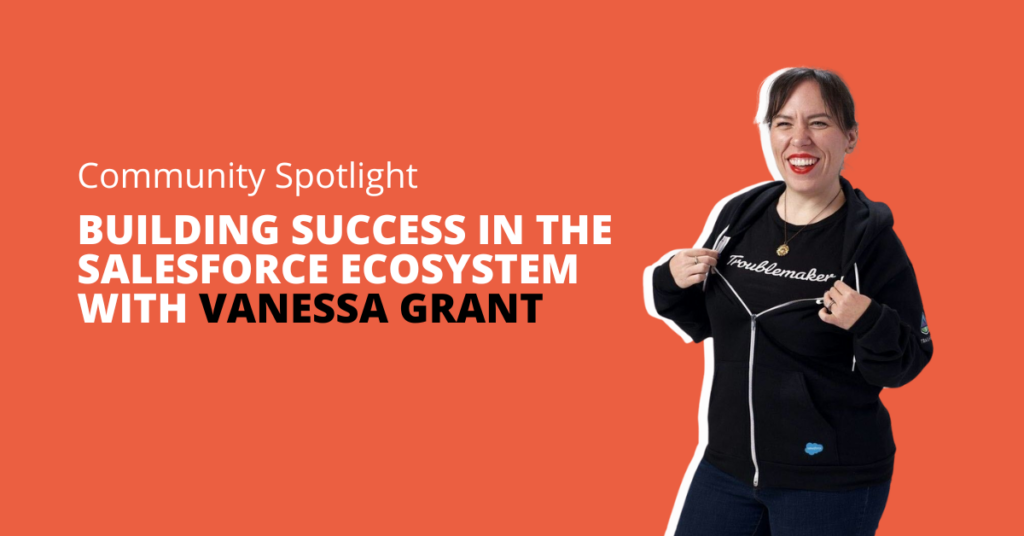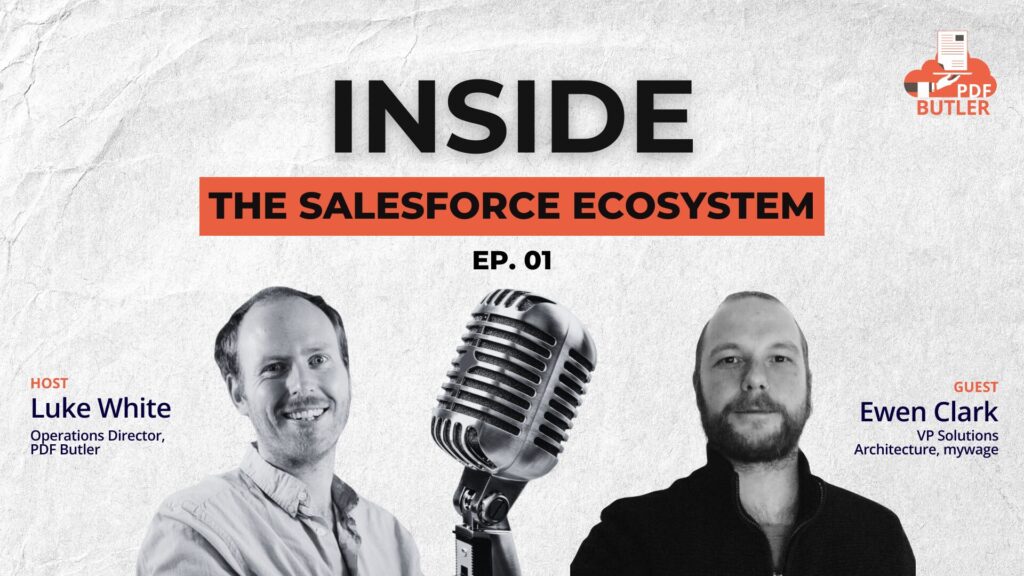Vanessa Grant is a 12x Certified Salesforce Business Analyst, freelance Salesforce Consultant, and co-host of the Salesforce Career Show podcast. She’s also a speaker at major Salesforce events like Dreamforce, London’s Calling, and Tahoe Dreamin’.
Vanessa has built her career around solving business challenges with technical solutions and process improvements. Her mission? To improve outcomes for Salesforce projects by advocating for quality business analysis, DevOps, and design.
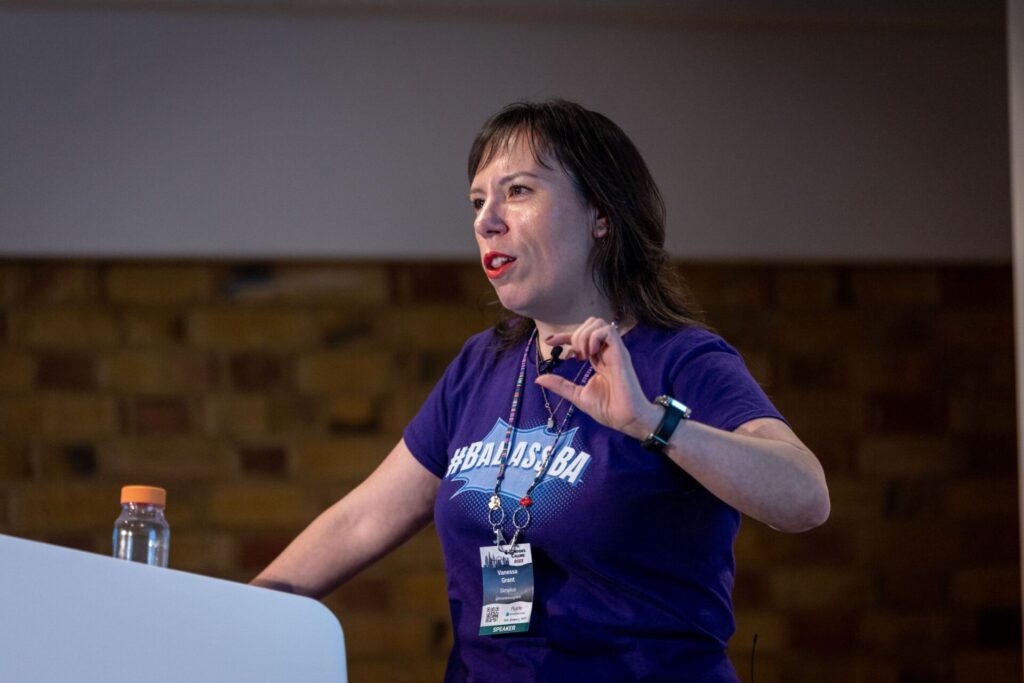
From Intern to Salesforce Pioneer
Vanessa’s Salesforce journey began at a company where she worked for 17 years. She started as an intern and worked her way up to Vice President of Business Operations. Along the way, her love for data and problem-solving made her the go-to person for managing the company’s CRM, eventually leading her to Salesforce.
In 2010, her organization faced a pivotal moment when they acquired two companies, each using different CRMs. Vanessa was tasked with choosing the unified CRM. “During my first Salesforce demo, I fell in love immediately,” she said. “I could see all the systems I could integrate without needing to build a custom CRM or rely on endless spreadsheets.”
From that moment, Vanessa became an “accidental product owner,” building and leading her own admin and development team while diving deep into the Salesforce ecosystem.
A Day in the Life of a Consultant
Currently working as a freelance Salesforce Consultant, Vanessa’s day-to-day life is anything but predictable. “Some days, I’m juggling multiple projects,” she explained. “My focus is usually on business analysis—customer discovery sessions, process mapping, or optimizing Salesforce delivery processes.”
While Vanessa loves diving into strategy and process, she admits she’s not one for hands-on configurations. “I prefer the skills that surround Salesforce development, like analysis and project prioritization.”
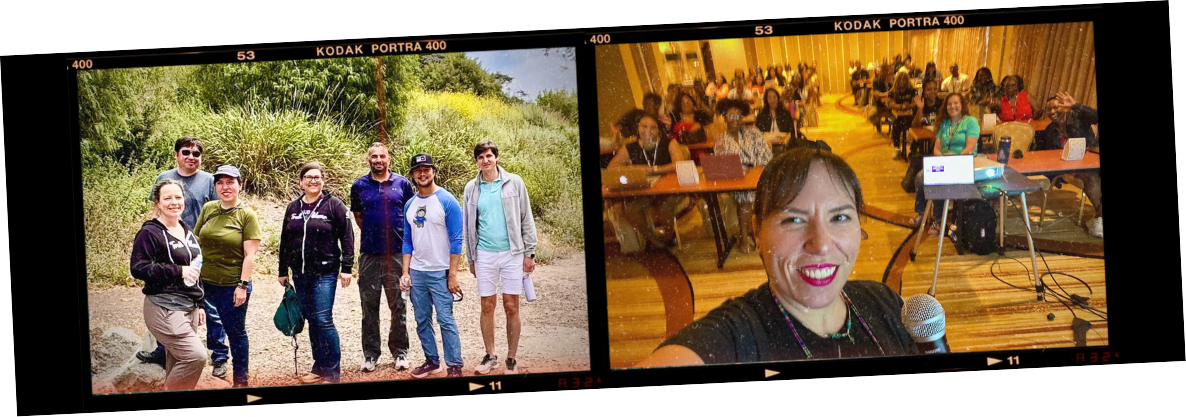
Key Skills for a Salesforce Business Analyst
Vanessa’s expertise in business analysis is central to her work. According to her, the most critical skills for success are empathy, communication, and attention to detail.
“You need empathy to build trust with stakeholders,” she explained. “Great communication is essential—not just to share ideas but to validate that you’ve understood the client’s needs correctly. And of course, documentation is key—whether it’s user stories, business process maps, or requirements.”
But technical knowledge is equally important. “You can’t call yourself a Salesforce BA just because you’re on a Salesforce project—you need to actually know Salesforce.”
Advice for Aspiring Salesforce Professionals
When asked for advice, Vanessa emphasized the importance of curiosity and adaptability.
“There’s so much to explore in Salesforce—different clouds, industries, and skill sets. If one area doesn’t feel like the right fit, trust me, there are plenty of other directions you can go,” she encouraged.
She also highlighted the importance of finding your passion. “If there’s something you’re truly passionate about in Salesforce, it will show—and that’s what will set you apart.”
